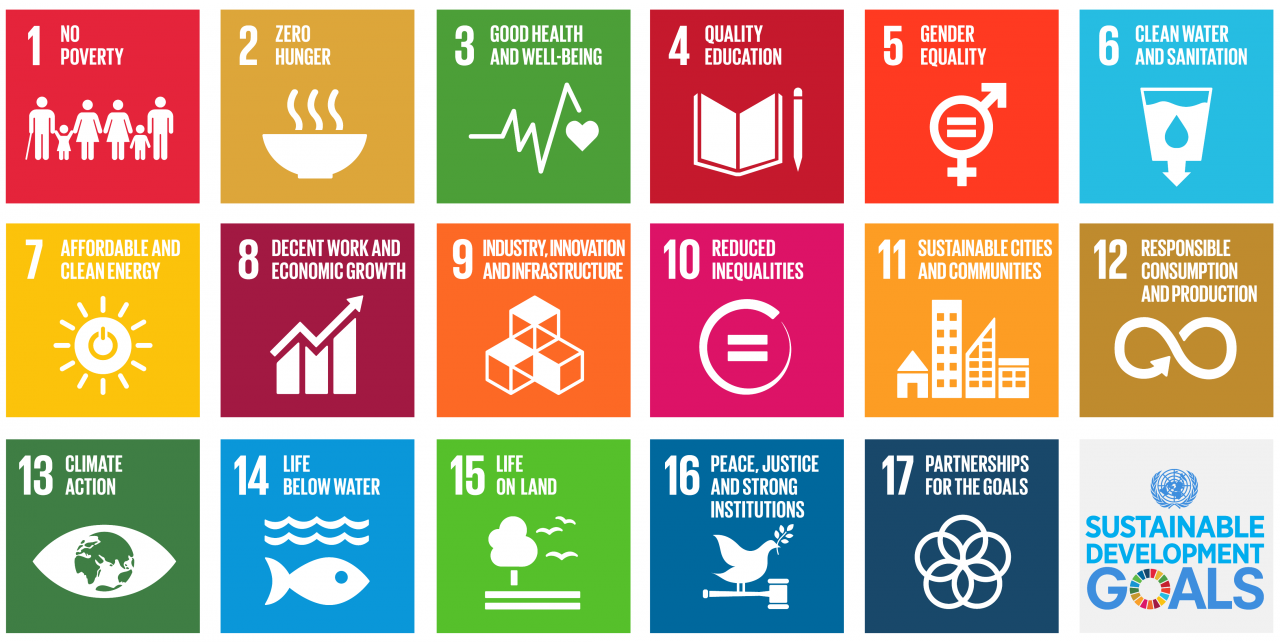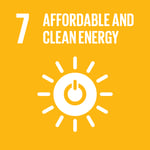UN Sustainable Development Goals
In 2015, the UN gathered world leaders and adopted 17 Sustainable Development Goals (SDGs) to end poverty, promote prosperity, ensure well-being for all, and protect the planet. Within the 17 global goals there are 169 targets and indicators to guide action. UN member states are expected to align their agendas and political policies with the SDGs. The deadline to achieve them is 2030.
The SDGs are interconnected, yet we can expect businesses to prioritise certain goals where they can make the biggest impact.

How businesses can achieve SDG 7: Clean Energy
Goal 7 is to “ensure access to affordable, reliable, sustainable, and modern energy for all.” Target 7.2 specifically abounds by saying: “By 2030, increase substantially the share of renewable energy in the global energy mix.” In short, we need to produce more renewable energy.
Companies can help achieve this goal by purchasing renewable electricity documented with Energy Attribute Certificates (EACs). Based on geographic location, there are different kinds of EACs: Guarantees of Origin in Europe, RECs in North America and I-RECs in a select and growing number of countries in Asia, Africa, the Middle East and Latin America.
Buying clean energy documented with Energy Attribute Certificates (EACs) can raise billions for investment in new renewable energy capacity. Companies can also follow high-impact energy procurement strategies by signing Power Purchase Agreements (PPA) that help secure financing for new renewable energy installations.

Global goals within reach
More renewable energy needs to be produced and consumed in order to reach the global goals and limit global warming to 1.5 degrees. This is a challenge for everybody, especially for companies that use significant amounts of electricity. Power generation is responsible for 30-40% of global emissions, of which businesses are responsible for half. By using renewable energy, companies can act on climate as well – SDG 13 Climate Action.
Using renewable electricity is a crucial strategy for companies to reduce Scope 2 emissions, greenhouse gas emissions from the consumption of purchased energy. By switching to renewable energy sources companies can transition away from fossil fuels and significantly decrease their total carbon footprint.
This shift not only contributes to meeting science-based targets but also contributes to limiting global warming to below 1.5 degrees Celsius, in alignment with the ambitious goal of the Paris Agreement. Additionally, embracing renewable electricity aligns with Sustainable Development Goal 13: Climate Action, promoting a more sustainable and climate-resilient future.
.png?width=150&height=150&name=SDG13-Climate-Action%20(1).png)
Net Zero Roadmap
There is no one-size-fits-all climate strategy. We design bespoke plans to guide companies step by step toward their decarbonisation goals
Do you want to know more about our solutions to reduce emissions? Let's have a chat.
Get in touch
Arturo Sanchez
Senior Key Account Manager
